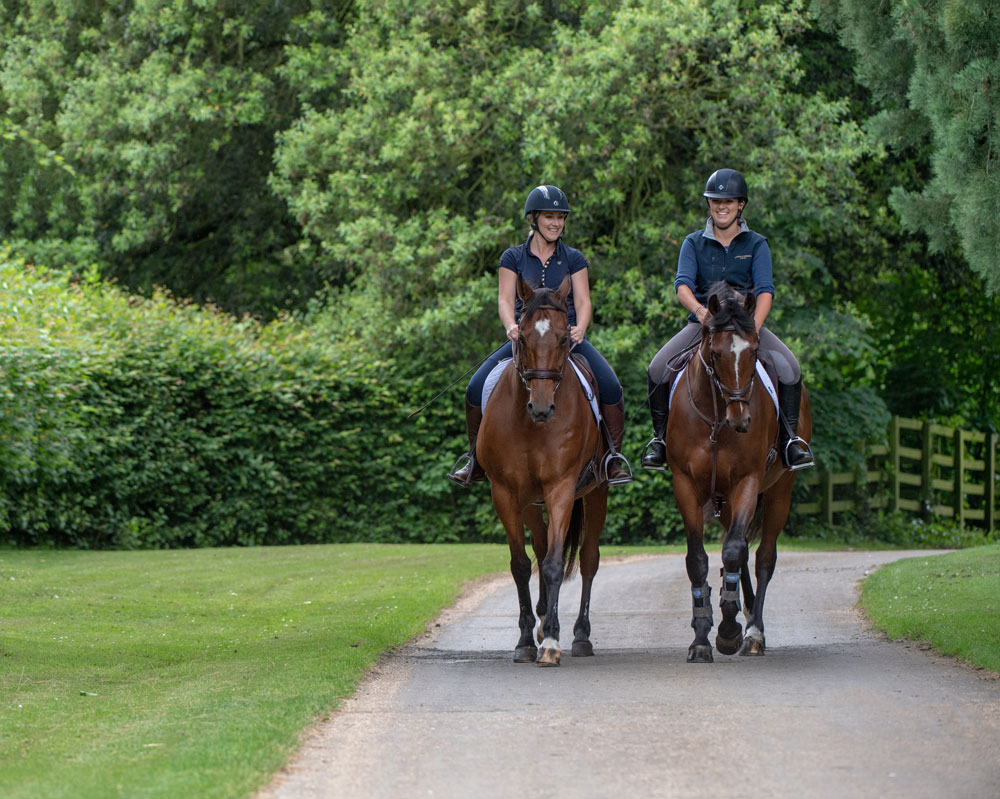What are Balancers?
Feed balancers are a relatively new concept in equine nutrition, and they have revolutionized the way that many horses and ponies are fed. Balancers are low intake, complete feeds which provide a concentrated source of proteins, vitamins and minerals.
Whereas traditional compound feeds normally have feeding guidelines exceeding 400g per 100kg of bodyweight, balancers are generally fed at just 100g per 100kg of bodyweight per day, making them great for horses who maintain weight really well.
There are many different balancers on the market, targeted towards different ages, disciplines, breeds and life stages, from Shetland Ponies to Thoroughbred Racehorses and foals to veterans. These balancers all have different specifications and contain different support supplements to meet the requirements of individual horses and ponies.
Why Should I Feed a Balancer?
Balancers are a great nutritional tool, but they will not be suitable for all horses and ponies. There are three main reasons for choosing to feed a balancer:
- 1. Your horse or pony is a very good doer:
Some horses and ponies maintain their bodyweight very easily on forage alone and will stay at a healthy weight (or even become overweight) on just grass, hay and/ or haylage. Even some performance horses in full work may not require additional calories to maintain their bodyweight. Whilst horses may appear happy on forage alone, they will not be receiving all the vitamins and minerals that they need, particularly if they are in medium or hard work. Vitamins in hay begin to degrade almost as soon as it is cut, meaning that levels, particularly of vitamins A and E, can be very low in hay and haylage. Levels of iron and manganese are high in grass, hay and haylage, often high enough to block uptake of other minerals such as copper and zinc. Feeding a low-calorie balancer will prevent these imbalances and ensure that horses are receiving all their micronutrient requirements.
- 2. You are feeding less than the recommended amount of a compound feed:
Often horses and ponies will need some additional calories to support their bodyweight and their performance but feeding a compound feed such as Pasture Mix or Competition Mix at recommended quantities would provide too many calories, leading to unwanted weight gain. Often feeding guidelines for these feeds are based on the minimum requirements of all vitamins and minerals. This means that horses fed less than those quantities may have some deficiencies but topping up their diet with a balancer is an ideal way to balance these out.
- 3. You are feeding straights:
Sometimes performance horses, breeding mares, stallions and youngstock and racehorses are fed on a diet of predominantly cereal grains such as oats, maize or barley. When fed alone the levels of lysine and methionine, critical amino acids for growth and development can be poor, leading sub-optimal performance. The ratios of minerals in cereal grains are not ideal, particularly high phosphorus and low calcium levels. A specific balancer for use with straights will be ideal to balance out any deficiencies and ensure that horses are receiving ideal ratios of amino acids, vitamins and minerals.

Which Balancer Should I Choose?
As mentioned previously there are many different balancers on the market and choosing the right one for your horse can seem like a daunting task! Dodson and Horrell produce 9 different balancers, but this quick and easy guide will help you decide which is best for your horse.
|
Balancer |
Features |
Ideal For…… |
|
Ultimate Balancer |
|
All horses and ponies, including those in hard work requiring a high specification feed without the calories |
|
Go Lite Balancer |
|
Horses prone to weight gain, requiring a low-calorie diet and those prone to laminitis |
|
Easy Everyday Balancer |
|
Horses and ponies in light work or at rest, to balance out a forage-based diet |
|
Be Calm Balancer |
|
Horses needing additional support to promote a calm and even temperament |
|
Senior Support Balancer |
|
Older horses or those who could benefit from additional joint support |
|
Performance Balancer |
|
Horses in hard work who need a high specification feed to meet their nutritional requirements |
|
Suregrow |
|
Breeding mares and youngstock requiring a high specification of proteins, vitamins and minerals to support pregnancy, lactation, growth and development without the additional calories |
|
Oat Balancer |
|
Mares and stallions fed on an oat-based diet |
|
Racing Balancer |
|
Racehorses in training fed on a predominantly oat-based diet |



